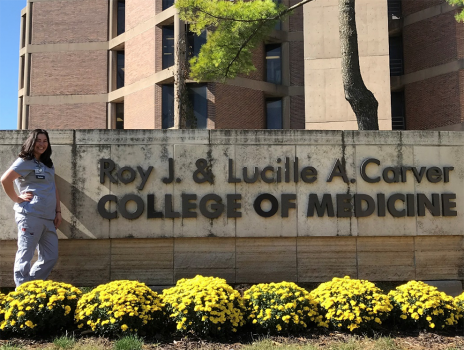
Program: Radiation Therapy
How did you choose your program? I always knew I wanted to be in the medical field because I live for helping others. I chose radiation therapy because of the balance of patient care and technical aspects the job allows. I love building relationships with patients during a vulnerable part of their life and be there while they kick cancer’s butt. I also love the behind the scenes of the career and learning about the types of cancers and how radiation works.
What experiences outside the curriculum greatly enhanced your education?
Growing up with a mom who had breast cancer inspired my interest to work in healthcare. Taking care of her at a young age gave me appreciation for those who help treat patients with cancer. My interest in wanting to understand radiation therapy stemmed from my mom going through treatment. After being in the program, it is interesting to look back at her history and be able to fully understand what she went through. Also, working at Iowa River Landing as a scheduler helped me understand all aspects of the field; it gave me a well-rounded perspective.
Who was especially helpful in guiding and mentoring you?
Barb Schmitt, RTT. Barb is an amazing teacher, encouraging, and wants her students to be successful. Thank you, Barb!
What was the most rewarding part of your Carver College of Medicine experience?
The most rewarding part of my Carver College of Medicine experience is seeing my growth. I look back at my first semester in the program and can see how I have developed. Radiation Therapy is not a basic subject you learn growing up, it was hard at first. Now, I feel confident and I’m excited for my future as a radiation therapist.
Share one memory that sticks out from your time as a student at Carver College of Medicine?
As I think about this, it is hard to pick one memory because I have so many. Between the relationships I built with specific patients to sharing experiences with my cohort to learning from the amazing therapists, I can’t choose one! I am so happy to have been a student at the Carver College of Medicine and will be forever grateful for my education here.